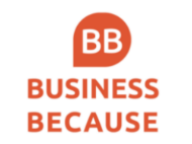Faculty News
—
Professor Scott Galloway offers his perspective on the social media backlash against Peloton following its release of a viral holiday ad
—

Excerpt from Bloomberg -- "Scott Galloway, a professor of marketing a the NYU Stern School of Business, said the commercial itself is tone deaf and borderline offensive. But 'in this attention-driven economy, anything that gets attention is arguably a positive,' he said in an interview. 'It’s bringing Peloton into the social discourse on very regular basis, which is what ads are supposed to do' If Peloton had to do it again, Galloway said, 'I’d argue they probably would.'”
Faculty News
—

Excerpt from Bloomberg -- "Scott Galloway, a professor of marketing a the NYU Stern School of Business, said the commercial itself is tone deaf and borderline offensive. But 'in this attention-driven economy, anything that gets attention is arguably a positive,' he said in an interview. 'It’s bringing Peloton into the social discourse on very regular basis, which is what ads are supposed to do' If Peloton had to do it again, Galloway said, 'I’d argue they probably would.'”






















